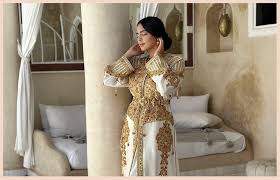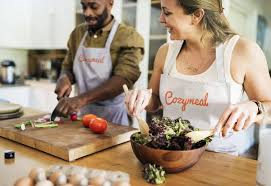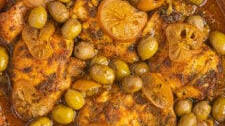The Rich Tapestry of Traditional Moroccan Culture
Steeped in history and brimming with vibrant traditions, Morocco is a country that exudes a unique charm that captivates visitors from around the world. From the bustling souks of Marrakech to the serene blue hues of Chefchaouen, traditional Moroccan culture is a tapestry woven with intricate details and captivating stories.
The Art of Hospitality
Central to Moroccan culture is the art of hospitality. Visitors are welcomed with open arms and treated to mint tea, a symbol of friendship and hospitality. The traditional Moroccan mint tea ceremony, known as “Atay,” involves pouring the tea from a height to create a frothy layer on top—a gesture that signifies respect for guests.
The Allure of Moroccan Cuisine
Moroccan cuisine is a melting pot of flavours influenced by Berber, Arab, and Mediterranean culinary traditions. Tagines, couscous, and pastilla are just a few examples of dishes that showcase the rich diversity of Moroccan gastronomy. The use of aromatic spices like cumin, saffron, and cinnamon adds depth and complexity to each dish.
The Vibrant Souks
No visit to Morocco is complete without exploring its bustling souks. These vibrant marketplaces are a sensory delight, filled with colourful textiles, intricate pottery, and exotic spices. Bargaining is an integral part of the shopping experience in the souks, where skilled artisans showcase their craftsmanship.
Time-Honoured Festivals
Throughout the year, Morocco comes alive with an array of festivals that celebrate its cultural heritage. From the lively music festival in Essaouira to the mystical Gnaoua World Music Festival in Marrakech, these events offer a glimpse into the soulful rhythms and artistic expressions that define Moroccan identity.
Architectural Splendour
Morocco’s architecture is a testament to its rich history and diverse influences. From the intricate mosaics of Fes to the majestic kasbahs of Ait Ben Haddou, each building tells a story of craftsmanship and creativity passed down through generations. The iconic riads offer tranquil oases amidst bustling cities.
Preserving Tradition in a Modern World
As Morocco embraces modernity, efforts are being made to preserve its traditional culture and heritage. Initiatives aimed at safeguarding ancient crafts such as carpet weaving and pottery making ensure that these time-honoured traditions continue to thrive in a rapidly changing world.
Discover the Timeless Allure of Traditional Moroccan Culture: A Celebration of Heritage, Hospitality, and Craftsmanship
- Rich cultural heritage
- Vibrant and colourful festivals
- Warm hospitality and welcoming atmosphere
- Exquisite traditional cuisine with aromatic spices
- Intricate and beautiful handicrafts
- Stunning architecture blending Berber, Arab, and European influences
- Lively and bustling souks offering unique shopping experiences
- Preservation of age-old traditions in a modernising society
Challenges of Navigating Traditional Moroccan Experiences
Rich cultural heritage
The rich cultural heritage of traditional Moroccan practices is a testament to the country’s deep-rooted history and diverse influences. From intricate artisanal crafts to vibrant festivals and time-honoured rituals, Morocco’s cultural tapestry weaves together a narrative of resilience, creativity, and community. Each aspect of traditional Moroccan heritage embodies a profound connection to the past, preserving customs and values that have been passed down through generations. This wealth of heritage not only enriches the lives of Moroccans but also captivates and inspires visitors from around the world, offering a glimpse into a world where tradition and modernity harmoniously coexist.
Vibrant and colourful festivals
Vibrant and colourful festivals are a hallmark of traditional Moroccan culture, offering a dazzling display of music, dance, and artistry that captivates both locals and visitors alike. From the rhythmic beats of the Gnawa World Music Festival to the lively celebrations of Eid al-Fitr, these events showcase the rich tapestry of Moroccan heritage and provide a platform for communities to come together in joyous revelry. The vibrant costumes, intricate decorations, and spirited performances at these festivals not only entertain but also serve as a vibrant expression of Morocco’s cultural diversity and artistic prowess.
Warm hospitality and welcoming atmosphere
Traditional Moroccan culture is renowned for its warm hospitality and welcoming atmosphere that greets visitors with open arms. From the moment you step foot into a Moroccan home or riad, you are treated like an honoured guest, invited to share in mint tea and engaging conversations. The genuine warmth of the people, coupled with the intricate rituals of hospitality, creates an inviting environment where strangers are welcomed as friends, making every interaction a memorable experience filled with kindness and generosity.
Exquisite traditional cuisine with aromatic spices
Indulge your senses in the exquisite world of traditional Moroccan cuisine, where every dish is a masterpiece infused with aromatic spices. From the iconic tagines to fragrant couscous, Moroccan culinary delights tantalize the taste buds with a symphony of flavours. The skilful blend of cumin, saffron, and cinnamon creates a sensory experience that transports you to the bustling markets and vibrant streets of Morocco. Each bite is a journey through centuries-old traditions and cultural richness, making dining an unforgettable exploration of the senses.
Intricate and beautiful handicrafts
Traditional Moroccan culture is renowned for its intricate and beautiful handicrafts, which showcase the exceptional craftsmanship and artistic skills passed down through generations. From colourful Berber rugs and ornate metal lanterns to intricately carved wooden furniture and vibrant pottery, Moroccan artisans create pieces that are not only visually stunning but also hold deep cultural significance. These handicrafts not only serve as decorative items but also tell stories of tradition, heritage, and the rich tapestry of Moroccan history.
Stunning architecture blending Berber, Arab, and European influences
The stunning architecture of traditional Moroccan buildings seamlessly blends Berber, Arab, and European influences, creating a visual tapestry that is both captivating and unique. From the intricate geometric patterns of Islamic design to the vibrant colours of Berber textiles, each architectural element tells a story of cultural fusion and artistic mastery. The fusion of these diverse influences results in buildings that stand as testaments to Morocco’s rich history and its ability to harmoniously blend different traditions into a cohesive and visually striking whole.
Lively and bustling souks offering unique shopping experiences
Immerse yourself in the vibrant tapestry of Moroccan culture through its lively and bustling souks, where every corner offers a unique shopping experience. From the aromatic spices that fill the air to the intricate crafts on display, exploring these traditional markets is a sensory delight that transports you to a world of colour, craftsmanship, and cultural richness. Bargaining with local artisans adds an interactive element to the shopping experience, allowing you to discover one-of-a-kind treasures while engaging in the age-old tradition of haggling.
Preservation of age-old traditions in a modernising society
In the ever-evolving landscape of modernisation, one of the standout benefits of traditional Moroccan culture is its steadfast commitment to preserving age-old traditions. Despite the rapid changes sweeping through society, the essence of Moroccan heritage remains deeply rooted in practices passed down through generations. This dedication to preserving customs such as intricate craftsmanship, vibrant festivals, and culinary artistry not only honours the country’s rich history but also serves as a poignant reminder of the enduring beauty found in embracing tradition amidst progress.
Language Barrier
The language barrier presents a significant challenge for visitors exploring traditional Moroccan culture, as Arabic and French serve as the primary languages in the country. For those unfamiliar with these languages, communicating effectively with locals and fully immersing oneself in the rich tapestry of Moroccan traditions can be a daunting task. This linguistic divide underscores the importance of language skills or the assistance of interpreters to bridge communication gaps and enhance cultural experiences while navigating the enchanting landscapes of Morocco.
Cultural Sensitivities
Navigating the cultural sensitivities of traditional Moroccan customs can pose challenges for visitors, as strict adherence to cultural norms and traditions may necessitate adjustments in behaviour and attire. This level of conformity can feel restrictive for some individuals who are accustomed to more relaxed social conventions. From modest dress codes to specific etiquettes in social interactions, the need to respect and align with these cultural expectations can create a sense of constraint for those seeking a more casual or uninhibited experience.
Tourist Crowds
Popular tourist destinations in Morocco, such as Marrakech and Fes, can suffer from the con of tourist crowds, especially during peak seasons. The influx of visitors can lead to overcrowding, long queues, and a sense of commercialisation that detracts from the authentic cultural experience that travellers seek. Navigating through bustling souks and historical sites may become challenging when overwhelmed by throngs of tourists, making it harder to immerse oneself in the true essence of traditional Moroccan life.
Haggling Pressure
Navigating the haggling culture in traditional Moroccan souks and markets can present a significant challenge for visitors unaccustomed to the art of bargaining. The pressure to negotiate prices may feel overwhelming, potentially causing misunderstandings or resulting in overpaying for goods. This aspect of the traditional Moroccan shopping experience can be daunting for those seeking a more straightforward transaction process, highlighting the need for clear communication and understanding between buyers and sellers to ensure a fair exchange.




